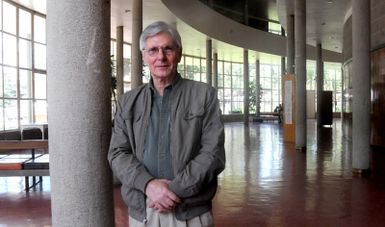Mario Lavista as one of Mexico's most avant-garde composers
Mario Lavista is considered one of Mexico's greatest composers. Lavista's prolific body of works -considered ahead of his time- has been heard in several cities around the world. He has also been an enthusiast of musical education and essay writing.





